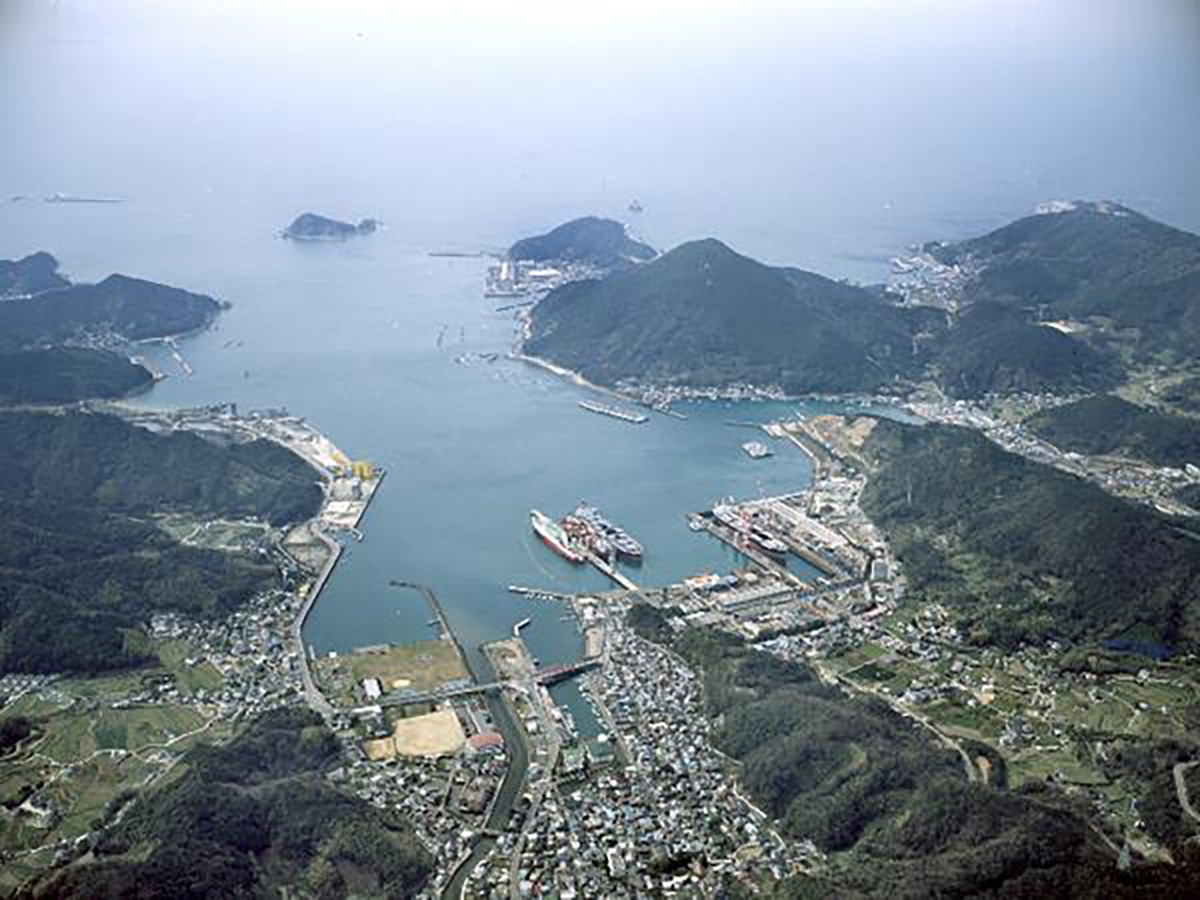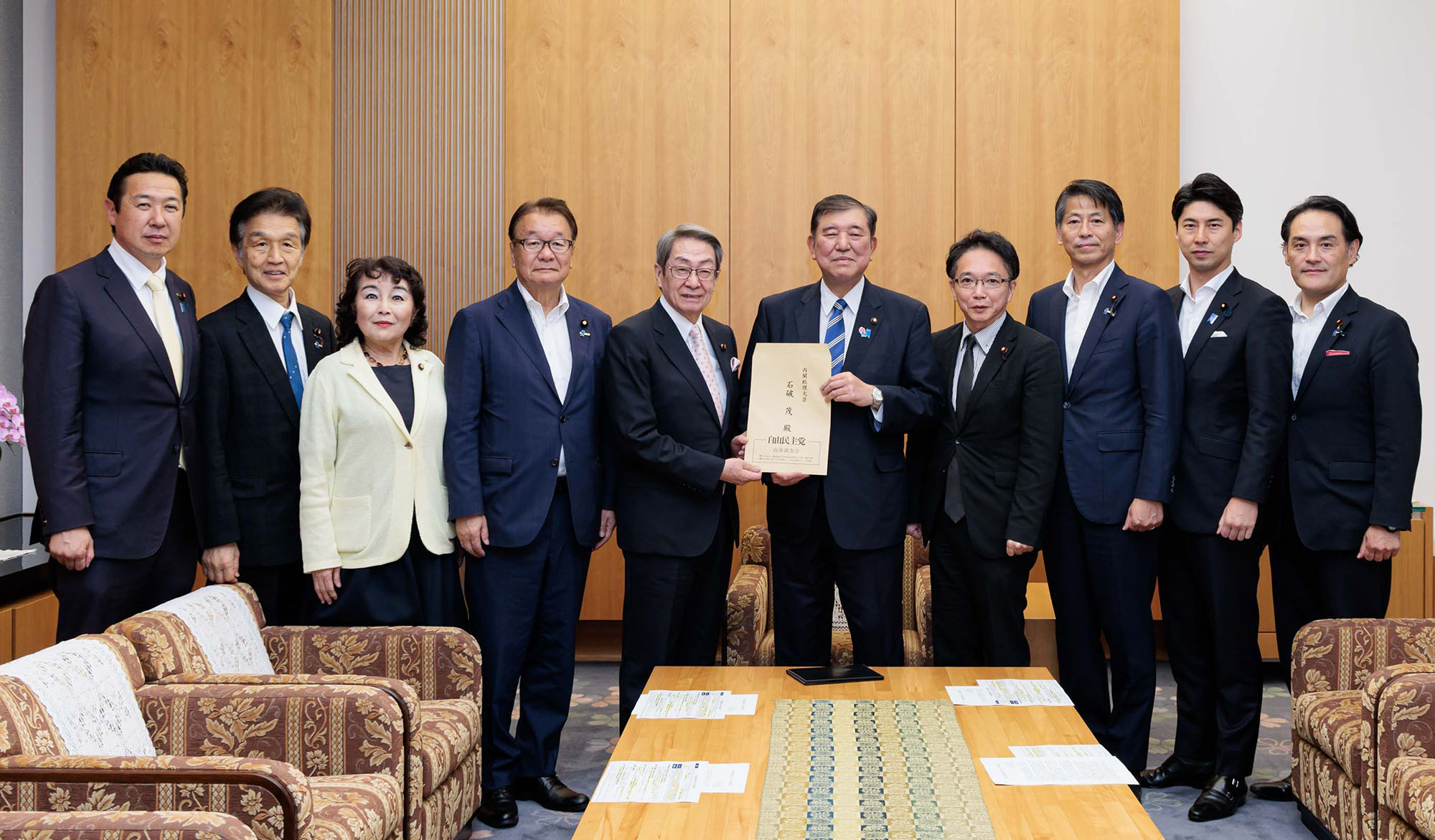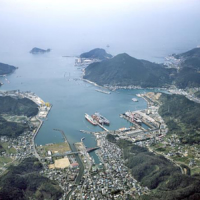Japan’s maritime industry is now at a critical juncture.
Shipping and shipbuilding are more than just one industry. They form the foundation for people’s lives and livelihoods, and they are the cornerstone of Japan’s economic security. For Japan, which relies on maritime transport for 99% of its trade volume by tonnage — including energy, food and raw materials — stable maritime transportation and the domestic shipbuilding capacity that supports it are of vital importance, directly linked to the nation’s survival.

However, Japan’s maritime industry is being hit directly by the tough challenge presented by Chinese and South Korean rivals that are supported by their respective governments, increasingly uncertain international situations, soaring fuel and steel product prices and a serious labor shortage. Japan’s shipbuilders once held the top position in the global shipbuilding market, but now Chinese and South Korean rivals together hold an overwhelming share.
If Japan’s domestic shipbuilding capacity continues to shrink, it could throw the country’s security and economic independence into a crisis.
The heightened risks to ships navigating through the Red Sea due to military conflicts and supply chain disruptions during the pandemic are fresh reminders of the vulnerabilities of maritime transportation. When energy and grain supplies to Japan are disrupted, people’s lives and industrial activities are instantly thrown into confusion. For this reason, maintaining Japan’s shipping and shipbuilding capabilities is not just an economic issue, but the most critical issue for the nation’s security.
With this strong sense of crisis, I, as the chairperson of the Liberal Democratic Party Policy Research Council’s special committee on marine transportation and shipbuilding, finalized the committee’s “resolution on enhancing and strengthening measures to realize a resilient maritime cluster in a new era” on May 14 and strongly urged the government to implement our recommendations.
Furthermore, realizing the need to clearly define the position of the shipbuilding industry for Japan’s economy and security, the Policy Research Council, the special committee on marine transportation and shipbuilding and the headquarters for the promotion of economic security under the Policy Research Council jointly compiled “emergency recommendations for revitalizing Japan’s shipbuilding industry” and handed them to the prime minister on June 19.
These recommendations suggested specific policies based on the ideas in the resolution and urged the government to implement effective measures. They proposed multifaceted and concrete measures to utilize GX (Strategy for Promoting Transition to a Decarbonized Growth-Oriented Economic Structure) transition bonds to promote next-generation-fuel vessels, expand the construction of government ships, increase support through tax measures, develop human resources and improve working environments.
These recommendations place the highest priority on maintaining and strengthening the shipbuilding industry from the viewpoint of economic security.
To secure and develop human resources, the recommendations emphasize a comprehensive approach that would enhance mariner education, train shipbuilding personnel through industry-academia-government collaboration, promote participation by women and young people and accept foreign workers. There is no future for the shipbuilding industry without human resources.
At the same time, the shipbuilding industry is at the forefront of technological innovation. Whether Japan can regain its international competitiveness hinges on its ability to lead in fields such as autonomous navigation technology, digital design, digital transformation of production processes and the development of zero-emission ships. Japan is able to lead the rule-making process at the International Maritime Organization and has both the responsibility and the opportunity to achieve carbon neutrality for the world.
I believe that, through these efforts, we must clearly show that Japan’s shipbuilding industry plays the important role of “creating local communities, protecting the country and leading the world,” and firmly establish a national strategy to “construct Japanese ships in Japan and possess them in Japan.” This is not just a slogan for industrial promotion, but a specific policy aimed at protecting national autonomy and supporting local economies and employment.
In my home prefecture of Wakayama, small and midsize shipbuilding and repair businesses have long supported the local economy by constructing and maintaining fishing boats and other small vessels.
They may not be large, but these efforts and technologies on the local level support the shipbuilding industry of the nation. Ship construction and repair work undertaken by local shipyards support the foundations of fishing and logistics and are indispensable to local communities.

Many of my fellow party Diet members contributed to the process of compiling the resolution and recommendations. They included Itsunori Onodera, chairperson of party Policy Research Council; Takayuki Kobayashi, chairperson of party headquarters for the promotion of economic security; and Tatsunori Ibayashi, chief secretary of the special committee on marine transportation and shipbuilding. I would like to emphasize once again our party’s commitment to revitalize the maritime industry.
If our shipbuilding industry declines, it will destabilize the nation. On the other hand, if the shipbuilding industry is revitalized, it will reinvigorate our local communities and strengthen the nation. Japan will be able to reassert its presence in the oceans around the world.
We now have the chance turn a once-in-decades turning point into an opportunity. The era of zero-emission ships is also a terrific opportunity for Japan to regain a leadership position.
As a Diet member and the chairperson of the LDP Policy Research Council’s special committee on marine transportation and shipbuilding, I will do my utmost to revitalize the nation’s maritime industry, joining forces with the government, industry and local communities.






